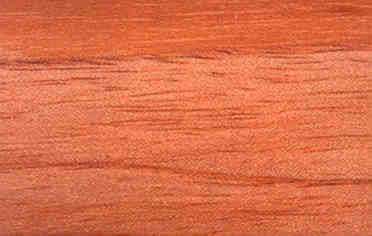 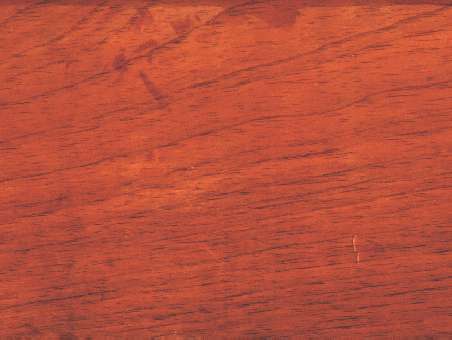  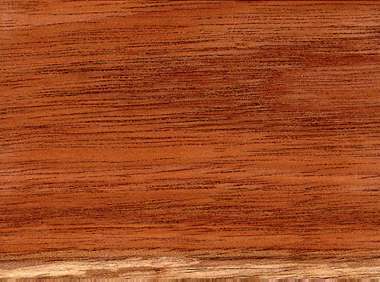 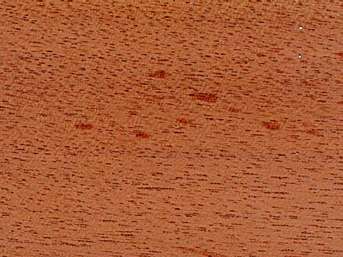 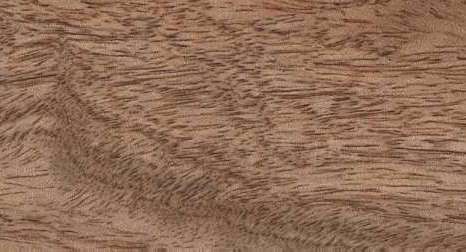
Central American cedar (Cedrela odorata)
Family: Meliaceae
Common names: Acajou rouge, Akuyari, Atoreb, Brazilian cedar, British Guiana cedar, British Honduras cedar, Cedar, Cedre rouge, Cedrela, Cedrela wood, Cedro, Cedro chino, Cedro hembra, Cedro macho, Cedro obscuro, Cedro oloroso, Cedro red, Cedro rojo, Central American cedar, Chujte, Cigar box cedar, Cigarbox cedar, Colorado cedro, Cuban cedar, Epi, Guyana cedar, Honduras cedar, Icte, Jamaican cedar, Kalantas, Kapere, Koperi, Kurama, Kurana, Mexican cedar, Nicaraguan cedar, Parank, Paranka, Red cedar, Rojas cedar, Rosas cedar, South American cedar, Spanish cedar, Tabasco cedar, Tiocuahuitl, Trinidad cedar, Tropical cedar, West Indian cedar
Distributed in: Argentina, Belize, Brazil, Colombia, Columbia, Cuba, Dominican Republic, Ecuador, El Salvador, French Guiana, Guadelope [France], Guatemala, Guyana, Haiti, Honduras, Jamaica, Mexico, Nicaragua, Nigeria, Panama, Peru, Philippines, Puerto Rico [US], Solomon Islands, South Africa, Tanzania, Trinidad and Tobago, Venezuela (Africa, Central America, Latin America, Oceania and S.E. Asia)
Distribution overview: Cedro hembra (Cedrela odorata) is the most commercially important and widely distributed species in the genus Cedrela. Known as Spanish-cedar in English commerce, the aromatic wood is in high demand in the American tropics because it is naturally termite- and rot-resistant. Cedro is widespread but never very common throughout moist tropical American forests; its numbers are continuing to be reduced by exploitation without successful regeneration.Cedro is a tree of the New World tropics, appearing in forests of moist and seasonally dry Subtropical or Tropical life zones (24) from latitude 26 N. on the Pacific coast of Mexico, throughout Central America and the West Indies, to the lowlands and foothills of most of South America up to 1200 m (about 4,000 ft) altitude, finding its southern limit at about latitude 28 S. in Argentina. Cedro is always found naturally on well-drained soils, often but not exclusively on limestone; it tolerates a long dry season but does not flourish in areas of rainfall greater than about 3000 mm (120 in) or on sites with heavy or waterlogged soils. Individual trees are generally scattered in mixed semievergreen or semi-deciduous forests dominated by other species
Common uses: Balusters, Bedroom suites, Boat building (general), Boat building, Boat building: decking, Boat building: planking, Boxes and crates, Building construction, Building materials, Cabinetmaking, Canoes, Carvings, Chairs, Chests, Cigar boxes, Coffins, Concealed parts (Furniture), Construction, Decorative plywood, Decorative veneer, Desks, Dining-room furniture, Dowell pins, Dowells, Drawer sides, Drawing boards, Drum sticks, Excelsior, Figured veneer, Fine furniture, Floor lamps, Flooring, Furniture , Furniture components, Furniture squares or stock, Furniture, Hatracks, Heavy construction, Interior construction, Interior trim, Joinery (external): ground contact, Joinery, Kitchen cabinets, Lifeboats, Light construction, Living-room suites, Millwork, Moldings, Musical instruments , Musical instruments, Office furniture, Paneling , Paneling, Particleboard, Plywood, Pulp/Paper products, Shingles, Sills, Sporting Goods, Turnery, Veneer, Veneer: decorative
Product sources: The ITTO reports that a very important source of timber. The timber is exported regularly, especially as square-edged timber and veneer.
Environment profile: Widespread
Tree size: Trunk diameter is 100-150 cm
Colors: the heart isWhite, Yellowand the sapwoodWhite to yellow, Yellow.The grain isWeak figure, the textureMedium to coarseand the lusterSlightly lustrous
Natural durability: Susceptible to marine borer attack, Very high natural resistance
Odor:
Natural oil in the wood gives off a distinctive fragrant scent.
Silica Content: Siliceous
Kiln Schedules: Kiln Drying Rate (in days) is fairly rapid
Kiln Drying Rate: Slow
Drying Defects: Slight twist/warp, Splitting
Ease of Drying: Thick Stock Requires Care
Tree Identification: Bole/stem form is straight
Comments: General finishing qualities are rated as good Timber produced by most species in the genus Cedrela are reported to contain volatile oils which tend to limit their uses. Timber from young or fast-grown trees is generally less resinous than that from mature or more slowly-grown trees
Blunting Effect: Moderate
Boring: Easy
Carving: Easy to carve
Cutting Resistance: Fairly Difficult to Very Difficult to saw
Gluing: May require surface treatment for best results
Mortising: good
Moulding: Good finishing
Movement in Service: Good finishing
Nailing: Pre-boring recommended, Satisfactory nailing properties
Planing: Planes well, to a good finish
Resistance to Impregnation: Sapwood is moderately resistant
Resistance to Splitting: Good
Response to hand tools: Good response
Routing recessing: Routing yields good results
Sanding: Moderate sanding qualities
Veneering qualities: Veneers easily, Veneers moderately easy
Steam bending: Good
Screwing: Excellent screwing properties, Screwing yields good results; Turning: Poor results
Painting: Good; Polishing: Very Good to Excellent; Staining: Very Good to Excellent; Varnishing: Good;
- Numerical data Metric
- Numerical data English
- Strength properties
- References
 |
 |
 |
 |
| Item |
Green |
Dry |
Metric |
| Specific Gravity |
0,33 |
0,36 |
|
| Density |
|
448 |
kg/m3 |
| Bending Strength |
428 |
680 |
kg/cm2 |
| Crushing Strength |
26 |
40 |
kg/cm2 |
| Hardness |
|
184 |
kg |
| Impact Strength |
|
43 |
cm |
| Shearing Strength |
|
70 |
kg/cm2 |
| Stiffness |
71 |
83 |
1000 kg/cm2 |
| Tangential Shrinkage |
6 |
|
% |
| Radial Shrinkage |
3 |
|
% |
| Weight |
464 |
400 |
kg/m3 |
| Maximum Load |
0,42 |
0,42 |
cm-kg/cm3 |
| Toughness |
|
180 |
cm-kg |
| Static Bending |
231 |
445 |
kg/cm2 |
|
 |  |  |  | | Item | Green | Dry | English | | Bending Strength | 6100 | 9679 | psi | | Crushing Strength | 380 | 570 | psi | | Density | | 28 | lbs/ft3 | | Hardness | | 406 | lbs | | Impact Strength | | 17 | inches | | Maximum Crushing Strength | 2564 | 4408 | psi | | Shearing Strength | | 1009 | psi | | Static Bending | 3290 | 6342 | psi | | Stiffness | 1021 | 1192 | 1000 psi | | Toughness | | 157 | inch-lbs | | Work to Maximum Load | 6 | 6 | inch-lbs/in3 | | Specific Gravity | 0.33 | 0.36 | | | Weight | 29 | 25 | lbs/ft3 | | Radial Shrinkage | 3 | | % | | Tangential Shrinkage | 6 | | % | | Volumetric Shrinkage | 10 | | % | |
Density (dry weight) = 31-37 lbs/cu. ft. 0
Bending strength (MOR) = low 0
Modulus of Elasticity (stiffness) = very low 0
Density (dry weight) = 23-30 lbs/cu. ft. 0
Max. crushing strength = low
Hardness (side grain) = very soft
Work to Maximum Load = very low
Toughness-Hammer drop (Impact Strength) = very low
Shrinkage, Tangential = small
Modulus of Elasticity (stiffness) = low
Max. crushing strength = medium
Max. crushing strength (stiffness) = very low
Bending strength (MOR) = medium
Shrinkage, Radial = very small
Shrinkage, Radial = moderate
Shearing strength (parallel to grain) = very low
Density (dry weight) = 46-52 lbs/cu. ft.
Density (dry weight) = 38-45 lbs/cu. ft.
Toughness-Hammer drop (Impact Strength) = low
Shrinkage, Radial = small
Compression strength (parallel to grain) = low
Surfaces may dent or scratch easily since the wood is soft and weight and density are considered average. Relative to its weight the wood is generally strong
Berni, C.A., Bolza, E., Christensen, F.J.,1979,South American Timbers - The Characteristics, Properties and Uses of 190,Species,C.S.I.R.O Div. Building ResearchBodig, J. and B. A. Jayne. 1982. Mechanics of Wood and Wood Composites. Van Nostrand Reinhold Company, New York.Bois, P.J.,1966,The Strength Properties of Tanzania Timbers,Tanzania Forest Div. Util. Sec. Moshi Tech. Note, No.35Bolza, E., Keating, W.G.,1972,African Timbers - the Properties, Uses and Characteristics of 700 Species,C.S.I.R.O. Div. of Building ResearchBoone, R.S., C.J. Kozlik, P.J. Bois, E.M. Wengert. 1988. Dry Kiln Schedules for Commercial Hardwoods - Temperate and Tropical. USDA, Forest Service, General Technical Report FPL-GTR-57, Forest Products Laboratory, Madison, Wisconsin.Brazier, J.D., Franklin, G.L.,1967,An Appraisal of the Wood Characteristics and Potential Uses of some,Nicaraguan Timbers,FAO for Forest Products Research Laboratory, Princes RisboroughBrown, W.H.,1969,Properties and uses of Tropical hardwoods in the United Kingdom. Part 1,Nonstructural properties and uses.,Conference on Tropical hardwoods SC-5/TN-5, Syracuse UniversityChichignoud, M., G. Deon, P. Detienne, B. Parant and P. Vantomme.1990.Tropical Timber Atlas of Latin America.International Tropical Timber Organization (ITTO, Centre Technique Forestier Tropical, Division of CIRAD, 45 bis Avenue de la Belle Gabrielle, Nogent-sur-Marne, CEDEX, France.Clifford, N.,1953,Commercial Hardwoods - Their Characteristics Identification and,Utilization,Sir Isaac Pitman & Sons Ltd. LondonCox, H.A.,1939,A Handbook of Empire Timbers,Forest Products Research Laboratory, Princes RisboroughDesch, H.E.,1948,The Cedars,Wood 13(2) pp40-3Edmondson, C.H.,1949,Reaction of Woods from S.America and Caribbean areas to Marine Borers in,Hawaiian Waters,Caribbean Foresters,10(1,PP37-41Erfurth, T., Rusche, H.,1976,The Marketing of Tropical Wood B. Wood Species from S. American Tropical,Moist Forests,F.A.O. Forestry DepartmentFanshawe, D.B.,1954,Forest Products of British Guiana Part 1 Principal Timbers,Forest Department British Guiana Forestry Bulletin (New Series 2nd,Edition,No.1Forest Products Research Laboratory, U.K.,1945,A Handbook of Empire Timbers,Department of Scientific and Industrial Research Forest Products ResearchForest Trust - Goodwood. 1993. Personal Communication.Gomez-Vazquez, B.G.,1981,Wood structure and potential end uses of some lesser known Mexican timber,species,Thesis for Msc. Univ. Wales BangorGua, B.E.,1988,Observation on timber samples of eighteen research and plantation species,Forest Research Note, Solomon Islands Forestry Division Number 53 21/88Haslett, A.N.; Young, G.D. and Britton, R.A.J.,1991,Plantation grown Tropical Timbers. 2. Properties, Processing and Uses,Journal of Tropical Forest Science 3(3):229-237Highley, T.L., Scheffer, T.C.,1970,Natural Decay Resistance of 30 Peruvian Woods,U.S.A. Agriculture Department, Forest Service, Forest Products Laboratory,,Madison Research Paper,No.143HMSO.1981.Handbook of Hardwoods, 2nd Edition.Revised by R. H. Farmer.Department of the Environment, Building Research Establishment, Princes Risborough Laboratory, Princes Risborough, Aylesbury, Buckinghamshire.I.U.F.R.O.,1973,Veneer Species of the World,Assembled at F.P.L. Madison on behalf of I.U.F.R.O. Working Party on,Slicing and Veneer CuttingKeating, W.G., Bolza, E.,1982,Characteristics properties and uses of timbers. South East Asia, Northern,Australia and the Pacific,C.S.I.R.O. Div. Chemical Technology,Inkata Press,1Keay, R.W.J.1989. Trees of Nigeria.Revised Version of Nigerian Trees. Clarendon Press, Oxford.Kukachka, B.F.,1970,Properties of Imported Tropical Woods,Forest Research Paper FPL 125Lauricio, F. M., Bellosillo, S. B. 1966. The Mechanical and Related Properties of Philippine Woods, The Lumberman, 12(5):A-H.Longwood, F.R.,1961,Puerto Rican Woods - Their Machining Seasoning and Related Characteristics,U.S.A. Department of Agriculture, Agriculture Handbook,No.205Longwood, F.R.,1962,Commercial Timbers of the Caribbean,U.S.A. Department of Agriculture, Agriculture Handbook,No.207Marshall, R.C.,1934,Trees of Trinidad and Tobago,Government Printer Port of Spain TrinidadMurira, K.,1984,Natural Durability Tests of Tanzanian Timbers 1955 - 1982,Tanzania Forestry Research Institute, Timber Utilisation Research Centre,,Moshi.Patterson, D.,1988,Commercial Timbers of the World, 5th Edition,Gower Technical PressPerpetua Hardwoods.Sea Star Trading Co. - Purveyors of Fine Wood.Newport, Oregon.Personal Communication, 1993.Polak, A.M.,1992,Major Timber Trees of Guyana A Field Guide,The Tropenbos Foundation Wageningen, The NetherlandsPoynton, R.J.,1957,Notes on Exotic Forest Trees in South Africa (Second Edition, Revised,South African Forestry Department Bulletin No.38Record, S.J., Hess, R.W.,1943,Timbers of the New World,Yale University PressRendle, B.J.,1969,World Timbers (3 Vols.,Ernest Benn Ltd. LondonReyes, L.J.,1938,Philippine Woods,Commonwealth of the Philippines Department of Agriculture and Commerce,Technical Bulletin,No.7Scott, M.H.,1935,Weights of South African Growth Timbers,South African Department of Agriculture and Forestry Bulletin,No.145,Forest Products Institute, Forestry Series No.1Smith, E.E.,1954,The Forests of Cuba,Maria Moors Cabot Foundation,U.S.A. Publication, No. 2Swabey, C.,1941,The Principal Timbers of Jamaica,Department of Science and Agriculture Jamaica Bulletin No.29Takahashi, A.,1975,Compilation of data on the Mechanical Properties of Foreign Woods (Part 2,Central and South America,Shimane University, Japan, Research Report on Foreign Wood No.4Tanzania Forest Division,1966,Kiln Drying Schedules for Tanzania Timbers Technical Note no.38,Tanzania Forest Div. Util. Sec. MoshiThomas, A.V.,1964,Timbers Used in the Boat Building Industry A Survey,Department of Scientific and Industrial Research Forest Products Research,LaboratoryTimber Development Association Ltd.,1955,World Timbers (3 Vols.,Timber Development Association Ltd.Timber Development Association,1948,Some New Timbers and Their Uses No. 34,Timber Development Association Limited, London [TRADA]U.S.D.A. Forest Service,1974,Wood Handbook,U.S.A. Department of Agriculture, Forest Service Handbook,72Vink, A.T.,1965,Surinam Timbers,Surinam Forest Service Paramaribo,3rd rev. ed.WCMC.1992.Conservation Status Listing - Trees and Timbers of the World.World Conservation Monitoring Center - Plants Programme, Cambridge, CB3 ODL, United Kingdom.Williams, L.1936. Woods of Northeastern Peru.Field Museum of Natural History, Botanical Series, Volume XV, Publication 377, Chicago.
|













